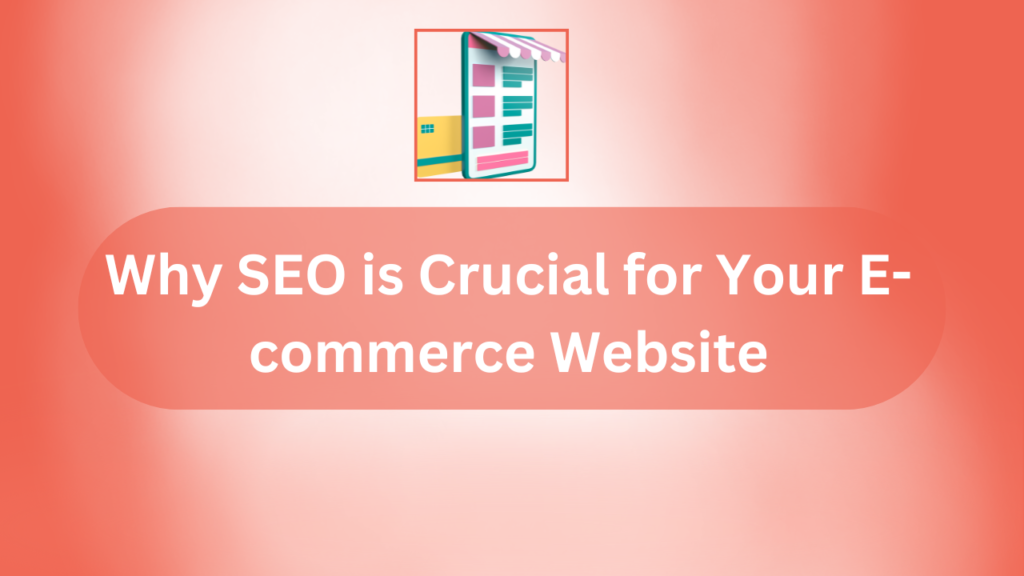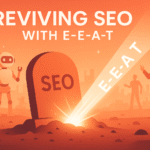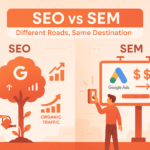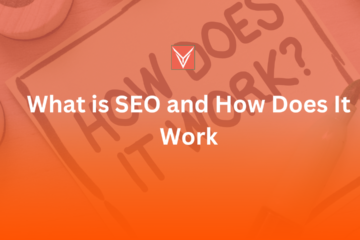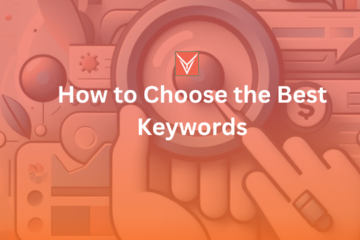Are you having trouble getting traffic to your online shop—even after paying for ads? You’re not alone. A number of e-commerce site owners create beautiful sites, add great products and wonder why they’re not slipping it big. The truth? If your store is not appearing in Google you are literally denying more than 50% of your potential customers from finding your store.
And that’s when SEO (Search Engine Optimization) comes in.
SEO isn’t just for bloggers or big businesses—it’s also for e-commerce sites dotting the Internet. It makes your products show up in search results when someone is shopping around to buy. When it’s done right, SEO can get you free, high-converting traffic, decrease your reliance on costly ads, and put you in a strong place against your competition.
Whether you level up with a Shopify store, work with WordPress, or invest and hire a freelance SEO expert, understanding the place and time for SEO is key to long-term sustainability. And if you don’t have a clue where to start, I’ve put together this simple guide to explain why SEO is no longer nice to have, but instead, an absolute must.
So, if you’re ready to rank higher, sell smarter, and grow faster, read on! And of course, if you ever need help, don’t hesitate to book a Free Consultation with Vishwanath Yadav, a trusted name for those seeking to hire a digital marketing expert, or free SEO audit services that produce tangible results.
Introduction to Organic Growth
The first of the kind is search engine optimization — SEO for short, and this is when you are literally optimizing a website so that Google (search engine) returns (search results) your website when someone is looking to see; SERPs — it means search engine result pages, for relevant keywords. Here, the commerce may be online, optimizing an e-grocery store to represent very prominently when its customers search for items or keywords related to the things the store sells. As opposed to paid advertising, which means advertising that has a cost and who pays for the ad placement, SEO aims to attract natural/organic/earned traffic from Google.
Unsurprisingly the value organic traffic has largely lies with the users who are looking to find certain products or answers to the queries which in turn boosts more intent for purchase. Although paid ads lead to faster glimmers of visibility, a good SEO will give you a foundation for sustainable and long-lasting web traffic. Investing in development (SEO) to create a healthy organic search presence is essential because it positions your e-commerce business to pull in potential customers throughout their journey.
Why SEO is Important for Your E-commerce Website
Reason 1: Drive Significant Organic Traffic to Your Online Store
SEO for an e-commerce site has the major benefit of bringing good traffic to your online shop organically. Through web design, by optimizing content, structure, and functions; businesses can make their websites show search engine results for profitable keywords. This additional visibility equals more customers potentially finding and browsing the website.
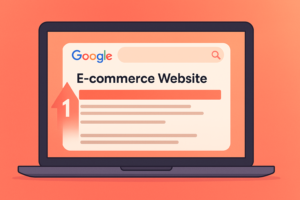
Even in e-commerce where the competition is very high, search engine results page (SERP) traffic is extremely important making organic search (43%+ of all traffic reveal statistics and even higher numbers say some reports, with one claiming organic search drives over 53% for the average e-commerce site). Also, The search traffic piece is especially massive (~95% lands on the first page of search results) which emphasizes how key proper optimization can be, as shown, the 2nd page or lower and past is not seen or considered by anyone.
Reason 2: Attract High-Intent Customers Ready to Purchase
SEO, of course, is not about driving traffic to the website; it should effectively bring inferred traffic—people who are actively seeking out a product or solution. It means the kind of purchase intent visitors that first come, where people tend not to be so business casual like social media for example.
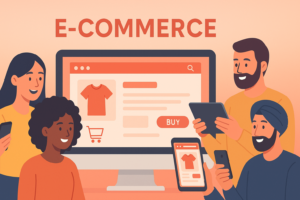
In fact, research has actually indicated that sourced traffic from SEO often has a higher conversion rate than social media or paid ad traffic. That’s because search connects folks with problems or needs (in our case, specifically purchasing something) looking for a business where we can partner with them. E-commerce searches are particularly meaningful: a good 70% of those searches are transactional, which just engrave the purchase intent for these users. An e-commerce website that ranks for transactional keywords will place the business in front of customers that are looking, or browsing but ultimately about to pull the trigger.
Reason 3: Achieve a Higher Return on Investment Compared to Paid Ads
Now sure whether the immediate traffic is delivered to an e-commerce website via pay-per-click, (PPC) or not but SEO is in a long-term marketing strategy that costs you way more in the end. Once search engine rankings for important keywords are secured the website will naturally begin getting traffic without any ongoing advertising costs being incurred. This return on investment is much better than PPC, where your cost is directly tied to the amount of clicks and ad spend.
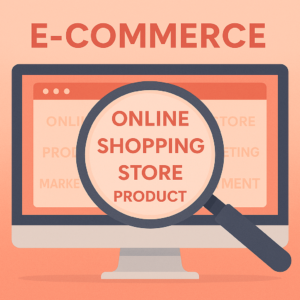
In fact, a big percentage of marketers, half of all marketers believe that SEO is going to give ROI better than any other marketing, and some statistics show e-commerce SEO has an ROI as high as 1,600% as compared to paid search. It may take a while and initial SEO to get the ball rolling, but long-term organic traffic amounts to higher sales at a lower customer acquisition cost so it makes it a worthwhile investment for the long haul in terms of e-commerce business.
Also, Read this Blog: 15 Actionable SEO Strategy for E-Commerce
Reason 4: Build Trust and Credibility with Potential Buyers
Trust is everything for e-commerce in the digital space. Websites that frequently appear on the top results of a search engine are usually regarded by users to be more trustworthy and authentic. Over time that perception is created as a website proves itself relevant and an authority in its field.
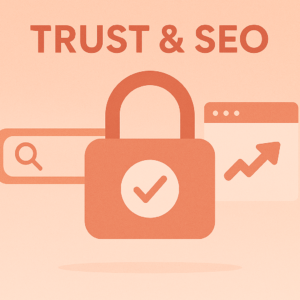
A good SEO strategy also aids this to a great extent, an e-commerce website should deliver higher search results for certain terms related to products. Keeping a high ranking for critical keywords is fundamental to the brand and recognition creation, as automatic trust signals are sent to searchers. This trust very much can dictate what influence a buyer has, they will be much more inclined to trust a page that seems authoritative and true for search results.
Reason 5: Enhance User Experience and Website Usability
Surprisingly, a lot of SEO best practices are the same principles that make for solid user experience (UX) and website usability. Google and other search engines love Web sites that provide a good user experience for the folks using them. Things that matter for both improving high search engine ranks and also user needs — fast load speed, mobile-friendly designs, and way of networking.
A clean and organized website with good SEO on an e-comm site is generally intuitive for visitors to navigate through and find what they are looking for. Furthermore, optimizing essential elements such as page speed and mobile views not only increases search engine optimization but also brings out a more seamless and better experience for the customers, which in turn leads to higher engagement and conversion.
Reason 6: Gain a Competitive Edge in the E-commerce Landscape
The online marketplace is usually very competitive, and you have to stand out to be successful as a business entity. SEO is a cost-effective investment that e-commerce businesses have a massive competitive advantage in. Ranking higher in search results today, when you might have previously struggled to get even on page 5 seconds away from where the majority of online shoppers could potentially see your store against competitor competition.
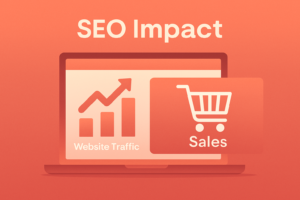
If your competitor’s website is constantly coming up on the top result for related searches, they are probably picking up customers that may have found your shop. A proper SEO strategy that has been properly designed and followed can assist with helping an e-commerce site to distinguish itself from competitors — by ensuring that it products/services are serving at the right place at the right time for the target audience.
Reason 7: Improve Mobile Friendliness for Growing Mobile Shoppers
Mobile access to online shopping portals is one of the most pronounced trends with mobile devices becoming more prevalent. In fact, worldwide in retail website visits carrying smartphones is now a significant part—some reports state upwards of 67% and mobile commerce composes around 68% of all e-commerce across visitors to the home page. Google and other search engines have taken notice of this trend with mobile-first indexing meaning sites that work on a mobile-friendly version tend to rank higher.

Search engine optimization is an important factor in ensuring that their e-commerce website is mobile responsive meaning it will give an excellent experience for mobile shoppers like smartphone owners & tablet owners. It might be responsive design, mobile-device fast loading speed, and easy navigation on smaller screens, in brief. E-commerce businesses can ensure that they can target the rising percentage of mobile shoppers and therefore better place their search engine performance by prioritizing mobile optimization for their SEO.
Reason 8: Support Your Content Marketing Strategy and Brand Authority
SEO and content marketing are tightly coupled, yet from the standpoint of an e-commerce site, they form the bedrock of creating visibility on the web. One of the most potent ways to bring organic traffic in (search engines loving) is by creating something useful like blog posts, buying guides and product reviews for your e-commerce business focused on an informational search the users want when relating to the product an e-commerce site offers.
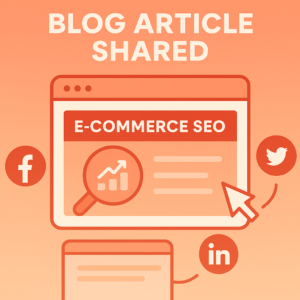
An E-commerce company that repeatedly releases valuable content solving customer problems, desires, and pain points will position itself well as an authority in their industry. It drives attention from people actively looking to buy as well as instilling trust and loyalty. Regularly publishing new blog posts and user-generated content is a common characteristic among sites that rank best with Google. Making this content optimized for the relevant keywords helps in making it indexable by search engines driving targeted traffic to the site also helps in overall SEO.
Reason 9: Boost Local Visibility for E-commerce Businesses with a Physical Presence
Local SEO is literally a game-changer for e-commerce sites that also have brick-and-mortar stores. Local Businesses can increase their search visibility in local results by using local keywords and submitting an optimized GMB profile. Especially so, as a large share of local searches ( around 80%) are followed directly with a conversion.
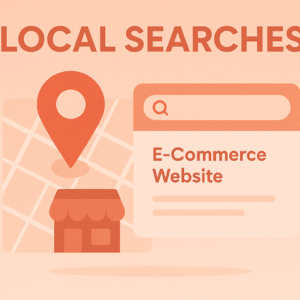
A good local SEO strategy makes sure that the physical store of e-commerce always ranks high in search results when local customers search for products or services “near me”, this will make it easy for potential customers to find and visit the store. The combination of online and offline presence is a huge driver of both foot traffic as well as online sales for brick-and-mortar e-commerce businesses.
Reason 10: Provide Measurable Data and Insights for Continuous Improvement
SEO is one of the measurable benefits another type of traditional marketing quantifies how well the work you are doing, as you can measure the success of SEO with these tools over time: using analytics like Google Analytics etc.. These tools offer vital information on user engagement on your website, keyword rankings, and the behavior of the users converted.
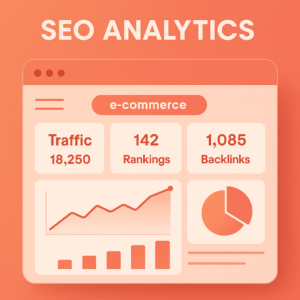
With this driven surveillance of the aforementioned crucial KPIs, e-commerce companies shall be able to understand the processes that are actually working in a real sense and work on improvement and help them in data-backed decision-making for continuous enhancement of SEO strategies gradually. This never-ending loop of analyzing and optimizing, it keeps businesses agile to the evolving search engine algorithms and user behavior which ensures that their SEO dollars are not lost.
Implementing Key Strategies
Comprehensive Keyword Research: Finding the Right Terms
Underlying every successful e-commerce SEO is a well-rounded keyword research foundation. It consists of discovering the exact what people search for, including the products (but online). This “search language,” combines what kind of content businesses should create and place on their site to what a target audience is searching for. Keyword research makes use of several tools to determine the number of searches, how competitive, and related keywords. Important to target not only long tail keywords (general terms and have large search volumes) but also short tail ones (more focused, says less information however each has a higher conversion rate. Effective keyword research requires know-how about the target audience and how they search for things.
On-Page Optimization: Perfecting Your Product and Category Pages
After identifying your relevant keywords, the next one will be on-page optimization. These are the content and HTML source code of each product and category page which needs to be optimized to be more attractive to both search engines as well as individual users. If you are into e-commerce, ingredients for on-page optimization would be writing captivating title tags/meta description keywords stacked up, using targeted words in h[1], h[2] headers, etc., H1, H2 this or that, writing long and interesting product descriptions containing as much target keyword as possible, optimizing product images with suitable file names/alt text.
The user experience and conversions are improved by including high-quality images. So when all product and category pages are properly optimized search engines can understand the content and relevancy of the page, making it appear at the top of search results.
Technical SEO: Ensuring a Smooth and Crawlable Website
This deals with the technical optimization of an e-commerce website regarding its crawlability and indexability by search engines. This means having a website structure and site speed that provides easy navigation across the full site speeds for fast load times; mobile-friendliness and responsiveness on devices, using sitemaps and robots.txt files right to manage search engine crawlers correctly as well as fixing crawl errors or broken links.
Having a solid technical SEO presence allows search engines to crawl and read all of the important pages on your site which is paramount for getting good search rankings. Poor mobile performance can either block a website from showing up in search results or drastically decrease the performance of otherwise equally qualified search results.
The Importance of High-Quality Content and Link Building
Product and Category are the backbone of every e-commerce site, however, having quality on-page content alone can make a big difference in driving organic traffic & brand authority to your website. It could be in the form of blog posts, articles, and other content that give more value to the interested customer that goes beyond selling products. Optimizing the content with suitable keywords will make these links visible to users who are looking for related domain topics.
Link building (Internal and external) is also vital for giving a good push to e-commerce SEO, it could be something like building links internally on the website or even externally (earning backlinks from other good quality sites). Real-quality backlinks from authoritative sites are one of the best ways to a better position on search engines. The core is producing worthwhile content, that others would be willing to link to is a very powerful strategy for getting links.
Conclusion
As you can see, SEO is far from just another buzzword – it’s a genuine, powerful strategy that will help your e-commerce site enjoy long-term success! Aside from driving good traffic and also building trust with your buyers, a good SEO strategy can help increase your business in the long run without spending a huge fortune on running ads every month.
But here’s the thing — SEO requires time and patience, plus the necessary know-how to be effective. If you don’t know how to get started, or if you have already tried SEO and it hasn’t worked for you yet, don’t worry. You’re not alone.
That’s why I’m here to help.
If you dream of bringing your store to the next level, I welcome you to Book a Free Consultation with me, Vishwanath Yadav. Whether it’s finding how you can hire a digital marketing expert or simply the best SEO Audit Service on the internet, I’ll help you figure out what’s missing and the next steps on your path to success.
And, after all, your store is made to be seen. Let’s guarantee that your future customers can find you, precisely when they need you most.

